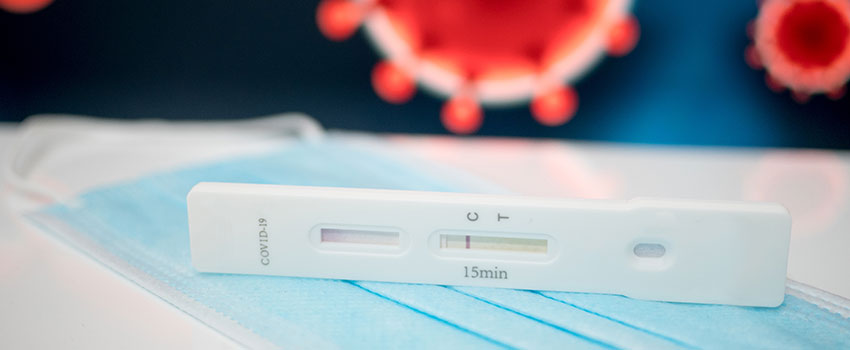Why Are Breakthrough Omicron Infections More Common Now?

During the recent outbreak of the omicron variant, breakthrough COVID-19 infections have sadly become much more common. The reason for this is that the omicron variant is far more transmissible than prior types of the virus.
As a result, it becomes more capable of evading the passive immunity provided by immunizations. Read on to learn more about breakthrough infections from our AFC Urgent Care Knoxville team.
What Are Breakthrough Infections?
A “breakthrough” infection, according to the CDC, occurs when a person tests positive for COVID-19 at least two weeks after being fully vaccinated, including receiving a booster dose when eligible.
According to the CDC, because no vaccine is 100% effective in preventing viral infection, breakthrough infections should be expected. In fact, the major goal of vaccines is to prevent serious illness and hospitalizations, which the COVID-19 vaccine and booster have been proved to be effective at. Furthermore, research suggests that omicron breakout infections among the immunized aren’t as severe. So, if you deal with any of the initial signs of omicron that we’ve listed below, don’t panic.
Common Omicron Symptoms
- Cough
- Fatigue or tiredness
- Congestion and runny nose
- Sore throat
- Headache
Does the COVID-19 Booster Shot Work?
Yes, it does. Studies show that booster shots are 90% effective at avoiding hospitalizations due to omicron in recent trials conducted by the CDC.
In addition to getting your initial vaccines and your booster shots, we’ve listed what you can do to lower your risk of getting infected with the omicron variant below.
Ways to Lower Your Risk of Omicron Infection
- Wear a well-fitting N95 or KN95 mask. These offer the highest level of protection, according to the CDC.
- Wash your hands with soap and water thoroughly and often. Make sure to wash for at least 20 seconds each time to properly rid of lingering bacterial and viral particles.
- Be smart with where you go and the events you attend. Even though physical distancing is still recommended by the CDC, not many adhere to it anymore. If you are immunocompromised, live with someone who is at high risk of becoming seriously ill or you have young children at home, you may want to be more cautious and keep your distance in public.
Feeling rough? We’re here for you! Stop by our AFC Urgent Care Knoxville location today.
